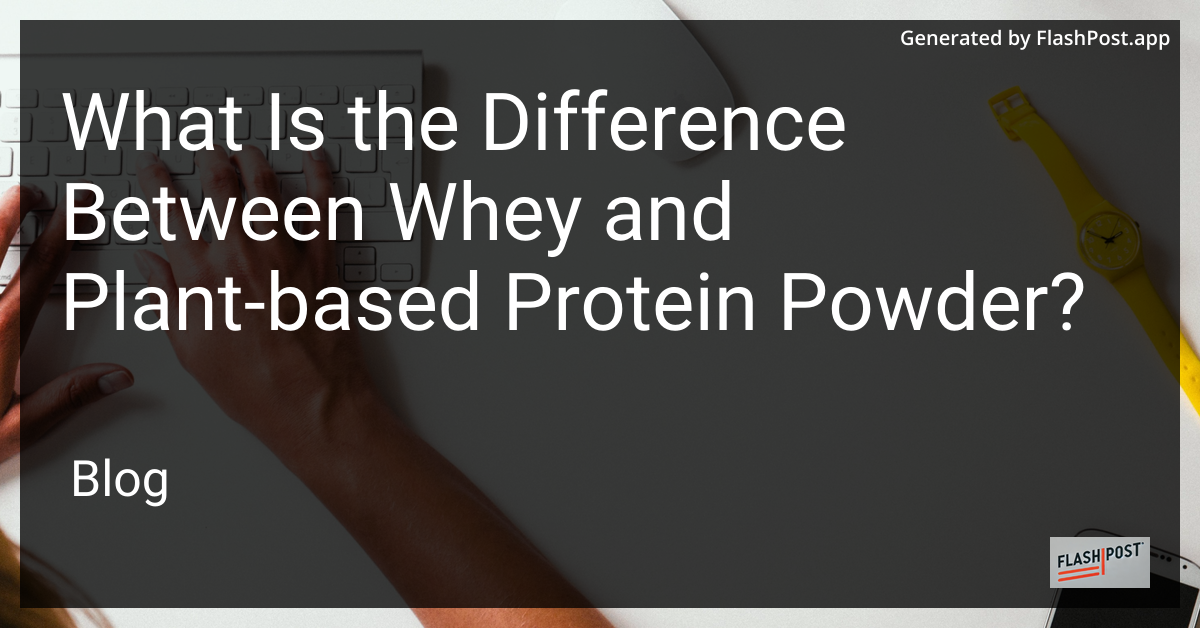
Choosing the right protein supplement can be overwhelming given the variety of options available. Two popular choices are whey protein and plant-based protein powders. Each type has its own unique characteristics, benefits, and potential drawbacks. In this article, we'll dive into the key differences between whey and plant-based protein powders, helping you determine which might be the best fit for your dietary needs and lifestyle.
Whey protein is derived from milk and is a byproduct of cheese production. It is one of the most popular forms of protein supplement due to its complete amino acid profile and quick absorption rate.
For more information on how to enhance your protein shake experience, check out this guide on improving protein shake flavor.
Plant-based protein powders are made from various plant sources, such as peas, rice, hemp, or soy. These proteins are ideal for vegetarians, vegans, or those with dairy sensitivities.
If you're interested in exploring more protein supplement options, look into low-sugar protein bars as well.
Deciding between whey and plant-based protein depends on your dietary restrictions, preferences, and fitness goals. If you look for rapid muscle recovery and have no lactose concerns, whey might be preferable. On the other hand, plant-based proteins are best suited for those avoiding animal products or lactose.
Keep an eye on future protein shake trends to make informed choices for your health and fitness journey.